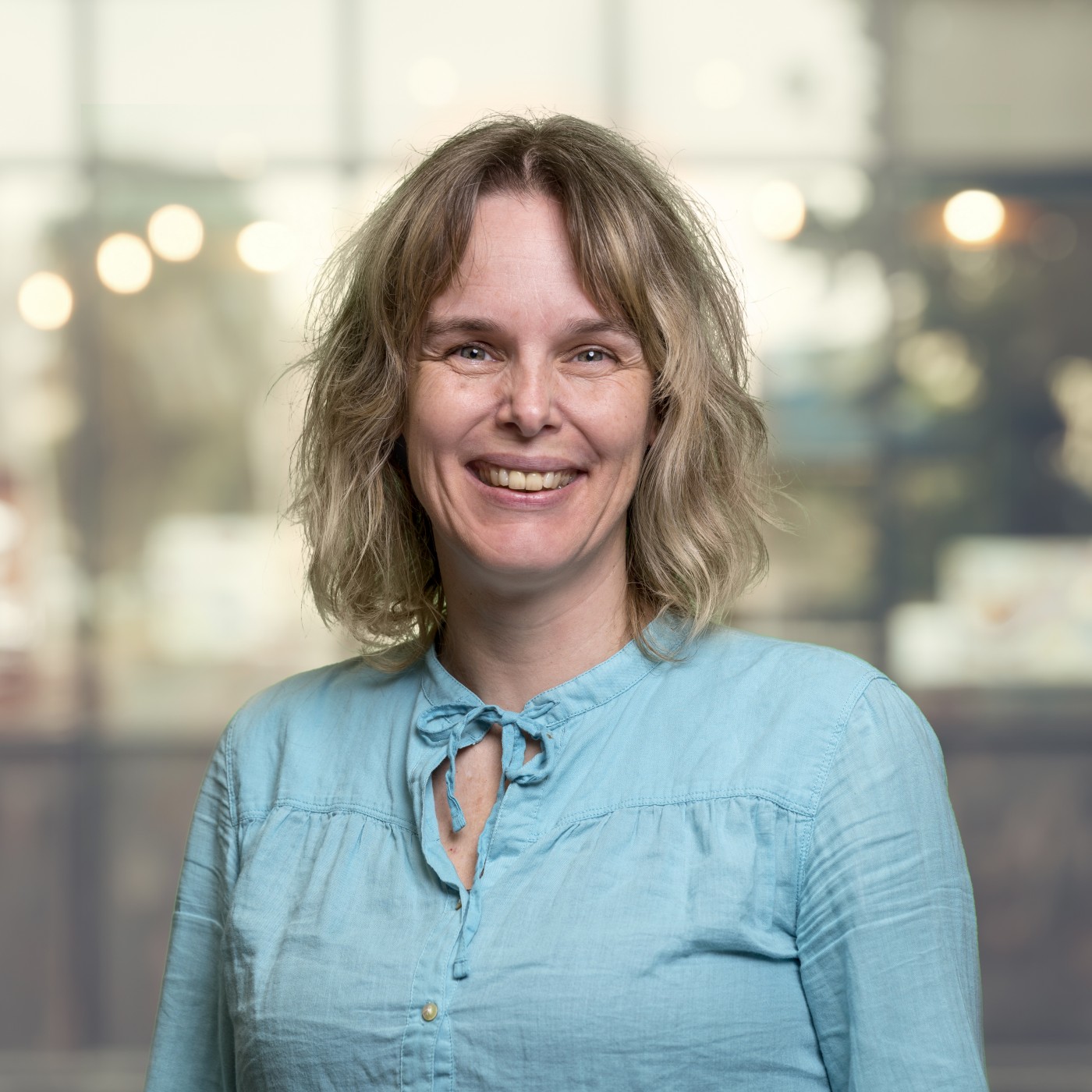

Pleased to meet: Karin van Kranenburg-Bruinsma
08-12-2023
SENIOR BUSINESS CONSULTANT

Karin van Kranenburg-Bruinsma studied mathematics at TU Delft and started working at KPN Research, the former R&D division of telecommunications provider KPN. She has been working at TNO for twenty years now, in various positions, but always looking from a strategic and economic perspective at innovations. Karin however also has great affinity with technology and got into chemistry and VoltaChem through Martijn de Graaf, Program Director VoltaChem. Since then she contributes to the program by putting the technical developments within Voltachem in a broader strategic and market perspective.
How did you end up at TNO?
When KPN Research was outsourced to TNO on 1 January 2003, I also ended up at TNO. I was amazed when I arrived at TNO. It is wonderful that TNO is committed to innovative solutions in all kinds of areas to help the Netherlands move forward. I have enjoyed working on all kinds of different projects within TNO, from corrosion propagation in concrete bridges to intelligent sensor networks. Chemistry is difficult to get into, but I find it extremely fascinating. I have now been involved in TNO’s chemistry research for eight years and working at Voltachem for six years. I was one of the authors of our whitepaper ‘Empowering the chemical industry, opportunities for electrification’ (2016), with which we took a first step towards Power-2-Integrate. And that is now, with Power-2-Hydrogen and Power-2-Chemicals, one of three VoltaChem’s program lines.
What does your job at VoltaChem involve?
I started looking at flexible plants and the application of hydrogen (H2) for sustainable fuels and sustainable chemicals. The fuel and chemical sectors are interrelated, and with the transition to a sustainable industry, this interdependence will only increase. My work focusses on this transition. We look at the entire chain: from energy generation to applied chemical products and fuels. It is important to bring all parties together to make this transition a success. And that is exactly what we do as TNO and VoltaChem. We bring parties together across sectors, including policy makers, since policy is the most important driver for the transition to a sustainable and circular society.
What are the biggest challenges?
The special thing about this transition is that it is driven by policy. We are dealing with huge climate problems and major transitions are needed to tackle them. This requires policy, because sustainable alternatives are often more expensive than their current fossil counterparts and thus will not meet market adoption automatically. In that sense it is different from previous transitions. There is already quite a lot happening in terms of regulation for fuels, but this is not the case for chemicals. It is nice to see that the chemical industry itself is now saying: ‘give us regulations too’, to stimulate a market for sustainable chemicals. Moreover, the transition to sustainable energy sources requires flexibility. Wind and solar energy is not always available. Processes in factories now run continuously and are not designed for intermittent energy resources. The question is how we ensure that factories are set up for this. Are we going to store energy or make processes flexible? The Netherlands now has several large fuel clusters, how will they develop towards the future? What role do we want to play as a country, and as North Western Europe? This transition to sustainable fuels and chemicals offers opportunities to take a role early on, and we must take advantage of that. There is still a lot to be done from an innovation perspective, and we need to do it quickly. Fortunately, progress is already being made. When I came to VoltaChem, it was mainly focussing on technology development and piloting. That is still the case, but in some areas the step towards scaling up is already being made. And the number of initiatives is growing.
What are your personal ambitions and motivations in your work?
I find it important to be able to make an impact on society with my work. We have to move towards a sustainable and circular society for the future of our children. The fact that I can contribute to this through my work at VoltaChem gives me great satisfaction. As I said, I find technology and chemistry fascinating. But the most important thing is that the technology we develop is also implemented, so that it contributes to a sustainable future.
Share this page: